It was a nice autumn evening when I sat on a bench opposite the City Hall of Köpenick with the river Dahme behind me. And that’s where we went to shoot the first photos after Justin had arrived. We started chatting right away, and the conversation went so well that I regretted not turning on the voice recorder from the beginning. But first I had to focus on getting some decent shots. We went over to the castle, and continued shooting in the park. Then we sat down on a nice bench under the trees and started with the interview.
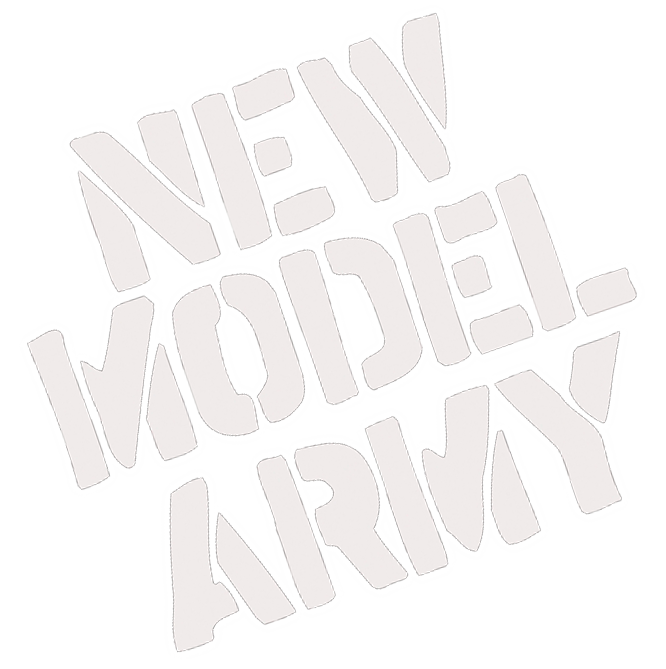
Last night you played at a festival dedicated to world peace. Did you ever believe in such a thing?
I read somewhere that some historians did some research. In the total of human history there had been a period of four and a half years of peace, or something like that. Probably it was more like three days here, and three years there, and you could add it up to being four and a half years. Do I believe in world peace? [silence] It‘s a strange time in Europe. Here we are in the park. It’s pretty nice, and it’s a lovely day. Then you think of what has happened here in the past, during the war. It‘s horrific. We are so strange; restless monkeys, never satisfied. I think we once wrote something like, “Where there is war we like to bring peace; where there is peace we want to bring war“ [from the NEW MODEL ARMY song „No Mirror, No Shadow“], and it’s a bit like that. And it just seems that way, especially at the moment in Britain, and probably everywhere else, but you know I‘m British, so [pause]. The language of war is very popular. This kind of “Us and them”, and building walls, and “We are right and they are wrong“, and “These are our enemies“. It does seem that either we have forgotten where this shit leads, or we are just sort of some pathetic drama junkies who can’t resist this.
And of course all the algorithms that were built up in the online world respond to clicks. So what makes people click? Anger and fear. And people are happy – they don’t really need to go online, and they don’t really need to click. “It‘s a lovely day today. Do I need to click? Yes!“ – “No, I don’t. Those bastards are selling you out!“ – “Do I need to click? Oh, ah, my anger is rising, click!“ And therefore this particular thing goes up, and it is more noticed. So I don’t think that people feel more war-like, but they have this kind of response. I don’t know; this is a strange, dangerous time. And maybe like in our song „The Weather“ – is it exactly a coincidence that at the same time the whole weather system of the planet is readjusting itself to a kind of new chemical reality: global warming? So as the weather is getting more dramatic, the storms are stronger, the droughts are deeper and the floods are stronger, the people seem to have the tendency to become more extreme. We are made of the same molecules; it’s not a coincidence. But then if you look at the particular small details of things, like the fucking Brexit or whatever, it’s just such nonsense in the context of what is happening on the planet. It’s like a joke.
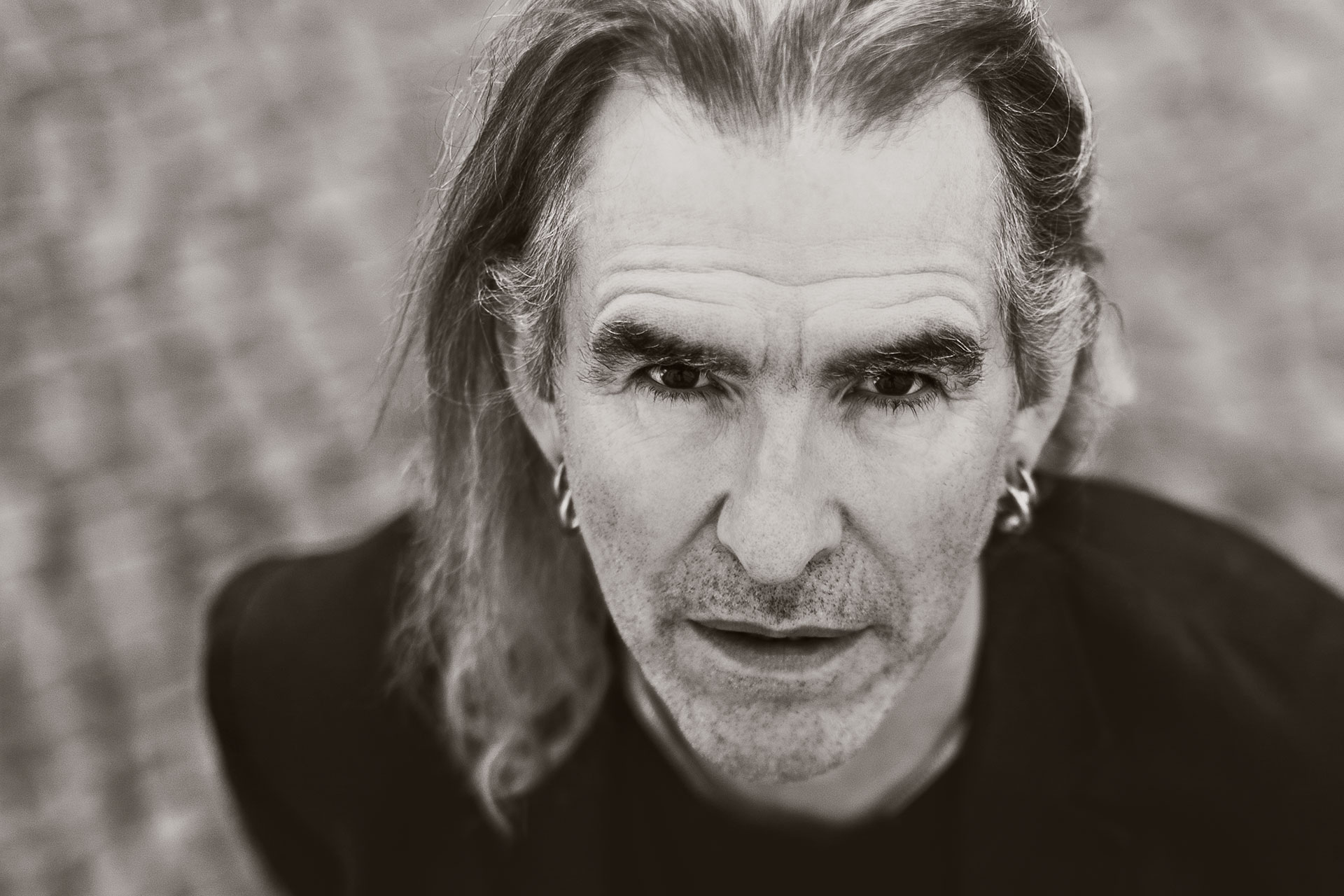
Almost like a distraction.
Completely! We are sort of dumb monkeys, really – tribal monkeys – dumb tribal monkeys. I started writing the new album at the end of last year. We all write in the same way, in the sense that we are collecting musical ideas from everyone. And these go into storage, a cupboard called “Musical Ideas“. We must not start making an album until the cupboard is full. But these days, the cupboard is almost always full. The other cupboard is “Stuff I Want to Write About“. But I definitely didn’t have the urge to write “Brexit is a con, la la la“. Winter was a bit more direct because it was written in the wake of what is happening. We knew the referendum was coming, and I kind of guessed what the result would be. It wasn’t a surprise to me. From Here is the absolute attempt to step away from it and look at the bigger picture. And when I had written what ended up as the last lines of the album, I knew they had to be the last lines of the album. [“So let’s all go home now, and look ourselves in the mirror, throw our heads back and laugh.“] It was definitely an attempt to step back. Then Lee Smith and Jamie Lockhart came to us and said that there is this studio where we want you to go to, and we looked at the pictures, and we went, „Yep, that’s our kind of place.“ So we went off to Norway. The album was mostly written in Bradford – but in a chance to step back, and look at the bigger picture – this was the perfect place to do it.
For me the new album has a melancholic mood.
Is that particularly surprising [laughs]? I‘ve always liked music with an element of melancholy. All New Model Army songs are in a minor key. I find music that hasn’t got an element of that doesn’t move me in the same way. I was thinking about this “bleak“ thing. There is this word in English, “bleak”; it’s the cold grey North Sea coast on a cold grey day, but it’s strangely beautiful.
I feel it.
It is melancholic, but it is beautiful and it is something that we all share as a band. We like places like that. We all feel connected to that love of bleak, which is slightly melancholic. We are not really big city wild party people. All my favorite records have an element of melancholy. They also have a slight element of voodoo as well – just something which is slightly dark, and slightly strange, and slightly not quite controllable, and slightly tense, and a bit otherworldly. I think our records tend to have some of that. This one definitely does. The terrible thing now with the „click-click“ world is that I am able to see all the reactions to the album. I tell myself, „Don’t look, don’t look!“ – but of course I do.
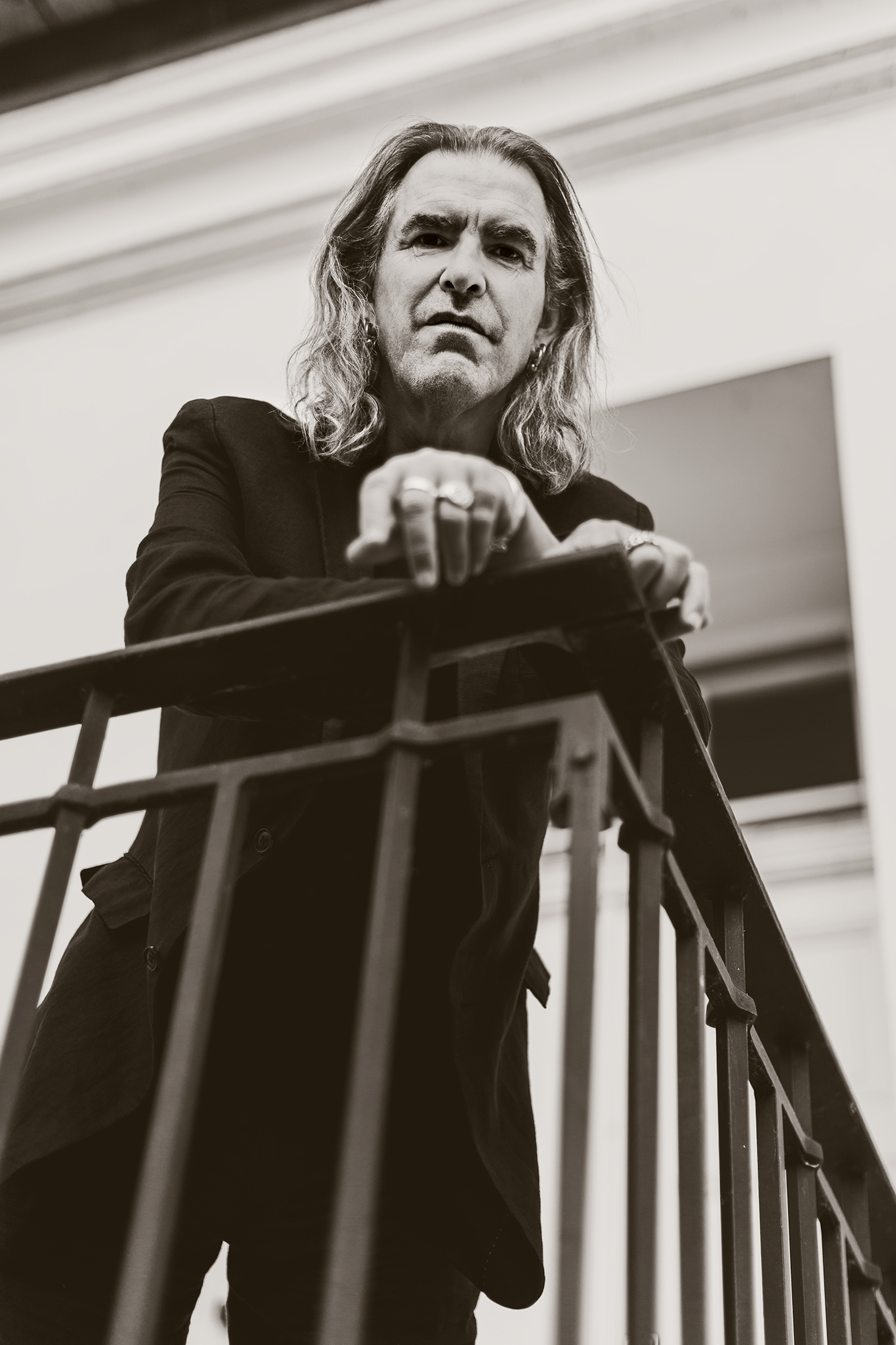
And then you get different reactions, which is kind of understandable. The ones that aren’t quite understandable are the ones who are like, “They haven’t done anything good since 1985!“, and I think like, “Ok, if you think that, why are you still here?“ [laughs]. But then, beyond that, some people think it’s instant; some people say it grows, and some people don’t really like it. Other people prefer something else, other people LOVE it! And I think that is utterly a chance. From Here has got a very strong atmosphere and, if you are not in the mood for it, then I understand that. If you get to the end of the first song, and you are not in that mood – take it off. But if you are in that mood, then you kind of run with it. So I can understand if some people put it on, and it is not what they expected or what they needed for themselves at that moment. Sometimes people talk to me about „the audience“, as if it is a singular. And sometimes I talk to other front people in bands, and they often talk about the audience like that, but I never think about it as singular. They’re different individuals with different backstories and at different points in their lives.
Especially with New Model Army – you have the most diverse audience.
It’s very diverse. They come from different places; they have different needs from the music, and they all have different favorite songs. Our music covers a lot of different atmospheres. Some people really love the mosh pit songs, where everybody joins together and dances. And other people like the very dark, sort of melancholic stuff. But they are all different, and they all have different ways of responding as well. Some people want to take their shirt off, and join with each other – there’s a kind of communion that they want to share with other people. Others want to stand quietly in the corner, and watch and listen, maybe with their eyes closed. Everything is equally legitimate. We never try to do that thing where you try to unite the audience, like, „Everybody say yeah!“. We’ve never done that, and I never will.
It would be wrong; it’s not the right band.
It’s not the right band because I respect everybody’s individual thing – they’re all individuals.
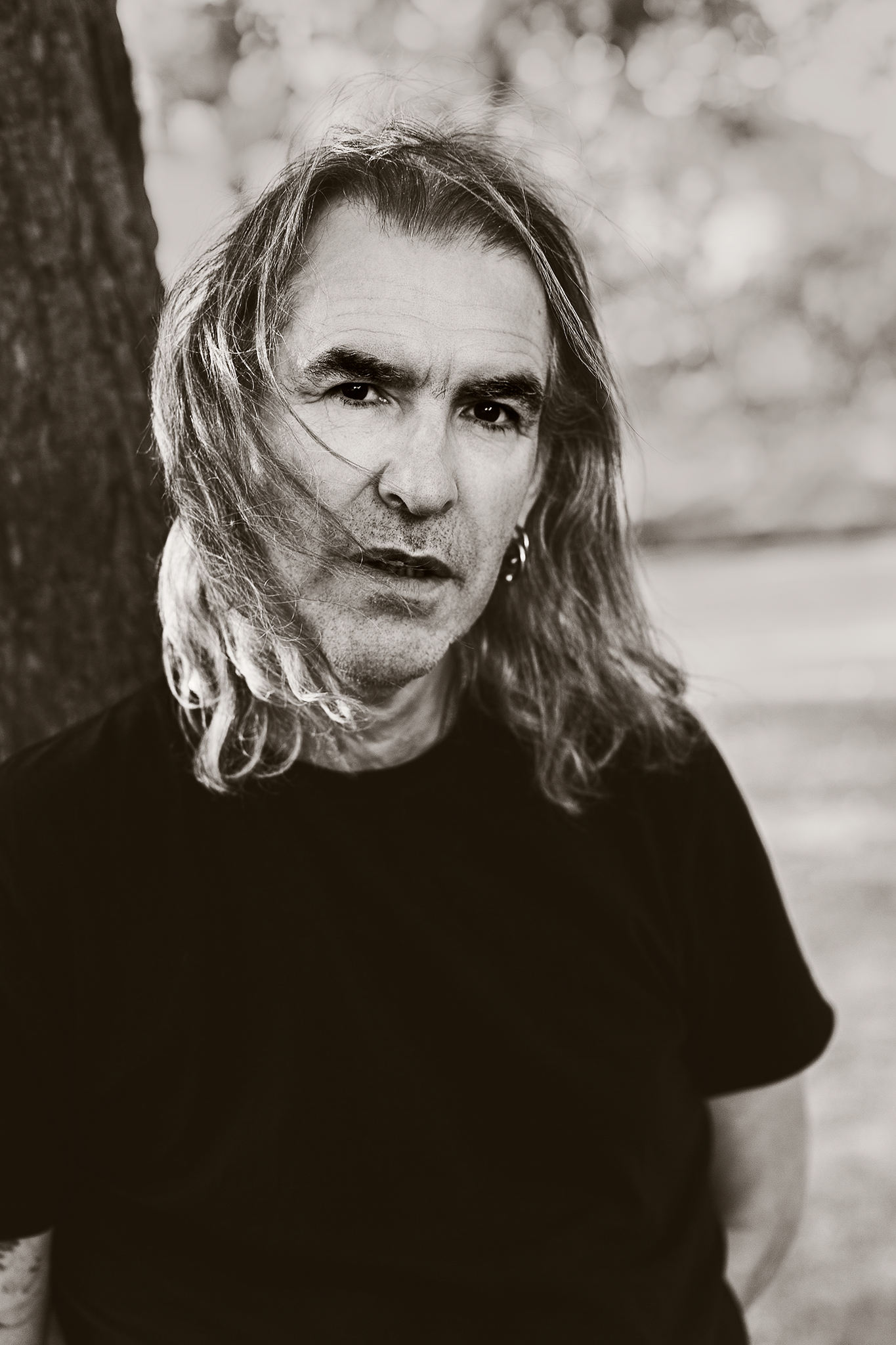
Let’s talk a bit about success. New Model Army has been around for a long time, and you can still make a living out of it, so you are very successful. However, NMA never made it as big as other bands of your generation, like The Cure or U2, for example. What do you think about this? Is it rather a blessing, or is it a curse?
In the early ‘90s we were sort of on the edge of becoming maybe a big band. And we fucked it all up somehow, partly by accident, partly maybe deliberately – because maybe we didn’t really want it. I don’t know. When I look back on the early ‘90s, I was most unhappy in some ways. I like touring around in a party of thirteen people, basic band, and crew. When it got to two busses and two trucks, I thought this was too many people, really. It’s not quite family anymore. So I didn’t love that.
But it’s partly by accident as well. We only ever tried to please ourselves. In one interview I did, the first question was, „How do you think the fans will react to the record?“ I said, „I don’t know. I hope they like it but if they don’t then – they don’t.“ But when you are making a record, you’re never thinking about the people that are listening to it – you’re trying to please yourself. You’re trying to make something you think is good.
There is one favorite story, it’s about New Order in a big studio in New York. They were with a big producer, and the producer was trying to persuade them to do something that they didn’t want to do with their music. And he said, „Look. Do you want a yacht?“ And Bernard Sumner said, „Yeah, I do want a yacht.“ And he said, „Well, are you prepared to do what it takes to get a yacht?“ And he said, „No.” Which is sort of my attitude to it, really. Do I want to be really successful? Yes. Am I prepared to do what it takes to get successful? No. It’s pretty simple, really.
And then, what is success? When you start in a band you dream about „making it“. What you mean by this is, in your crappy job, and coming down to rehearsals late after being tired from work, you mean to make a living from it. We crossed that line around 1984 or 1985, when we could make a living from it. And that’s success. So the last time I looked in my fridge, there was food in it. That’s success.
We never really tried to please anyone, including our own audience. „Play ’Vagabonds’!“ Well, we might, or we might not. If any song threatened to become bigger than the band – it started with “Vengeance“ in the UK – we just stopped playing it. ”51st State”, “Vagabonds” – we stopped playing them, at least for a bit. No song is bigger than us; there is no song we HAVE to play. But that’s shooting ourselves in the foot, not to play the hits. I remember three years ago we played “Green And Grey”, and we got to the end of the song, and I hadn’t even noticed that we had played it. I thought, “We have to stop playing this.” So we just stopped playing it for a bit, and then this summer we played it somewhere and I thought: „I love this song.“

When we set off to make From Here, we didn’t have to please anyone. We just did what we like doing, trying to make something that is good. So that’s success, to be free to do just WHATEVER you like. Neil Young said that, if you just stick to your guns long enough, eventually people learn to trust you.
There are those people who love what we did in the ‘80s, and now they don’t come. Ok. There are enough people that do come to sustain us. Even if they didn’t come, would we stop making music? Of course not!
At the beginning of the 2000s there was a phase when there were less people coming, and the venues were getting smaller. But you just continued doing your thing, and the last few years there was a constant increase, and you even charted with the new album. Can you explain this?
The chart thing is a bit strange because we only sold 23 records, and that’s enough to put you in the top ten. Somebody said to me, „Your most successful record ever!“, and I was going, „Well, in terms of sales – not exactly.“ I think there are two or three reasons. One is that we have become serious about making albums. There was this statement we made in the beginning of making this record. People said the album is dead because people just want short hits on YouTube. They want to click and listen to the first thirty seconds, and then if they don’t like it: „click“. But I’m not sure if this is entirely true. On the grounds of what people watch, they want long series that go on forever and that have got a strong atmosphere.
So I think actually the album is not dead, and we became serious about making albums again, albums that are properly made. So for Between Dog And Wolf and Between Wine And Blood we said, „Let’s go to the top, we’re going to produce it ourselves. But we are going to have a number one mixer in the world to mix it.“ So we got Joe Barresi to do it. That worked well, and then we discovered Lee and Jamie, and we liked what they did. So with From Here we gave them a free range, sonically. We thought about the sonics quite a lot. Winter was a slightly claustrophobic sounding album. We did it in their studio in Leeds, which is a tiny room, so it sounded like a loud band in a small room. Then we said, “Let’s do the opposite”, and we went to a really big room. Michael is still crazy about tom-toms, so we have these pounding tom-tom rhythms. But if you want the natural ambience of the drums in a big room, then you have to get the guitars out of the way.
So we made this principle that the guitars are going to be clean telecasters and acoustics. And that allows the space for the bottom end. When you listen to metal and stuff, you will never hear the ambience of the drums. You hear the drum, but you’ll never hear the space around it and its size because that space in the music is eaten up by the guitars. We decided to make the guitars quieter, which made it a big sounding album, and quite empty in a sense. I like that sound.
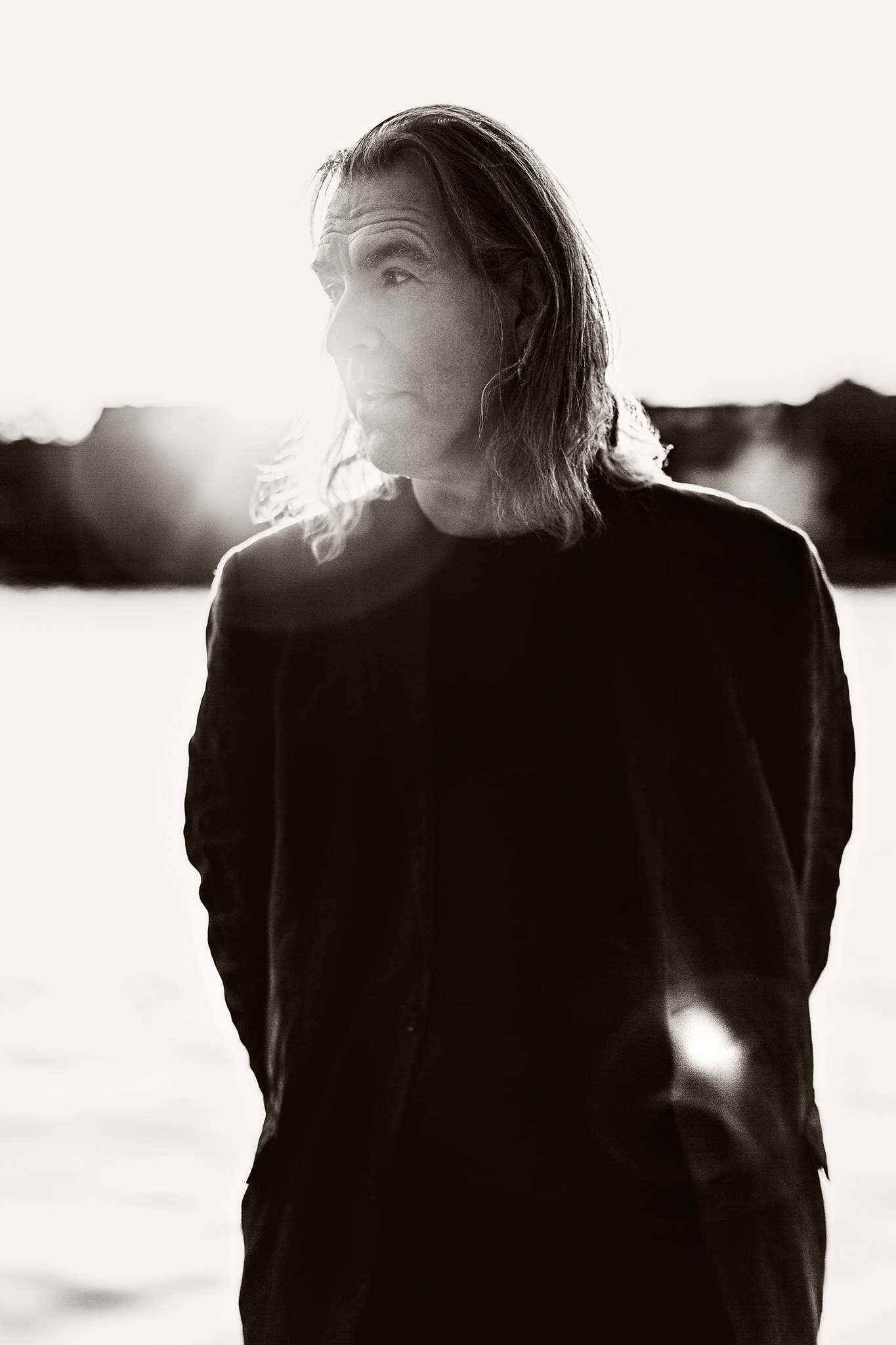
And Ceri [bassist] joining has been very good for us. It is the energy of youth that he has, and also he is a very flexible musician. Nelson was a brilliant bass player, but he had his Nelson way of doing everything and didn’t really move. He played Nelson, and it’s brilliant, but it was kind of fixed. And Ceri is a little bit more like, „We’ll do this“, or „We’ll do that“, or he is quite happy just to stick on one bassline that just repeats and repeats.
There is this funny story: When Ceri did the audition, it was a boiling hot summer day, and he had long sleeves. And I thought, „Bloody hell, he must be boiling, why doesn’t he roll his sleeves up?“ Then we did a second audition with the people we thought were the best. But it’s difficult to choose, so it’s two or three people for the second audition. Same thing – long sleeves. We had to think a lot about Ceri because he is much younger than us, and how it would be for him, and how it would be for us – also because he lives miles away. But in the end we decided that he was in our gang. He just felt like one of us; he felt like the right person in every way, and we all agreed. And then, after we gave him the job he rolled up his sleeves, and he had a Thunder And Consolation tattoo! – which he didn’t want us to know because he didn’t want us to know that he was a fan!
I think there’s also another thing. We had this big-ish audience in the late ‘80s, and some of them drifted away because they didn’t love the music so much. And some of them drifted away because they got mortgages, and kids, and jobs. But now, as their kids get older, they come back because they can go out in the evening again [laughs]. So I think there is a bit of that as well.
I also think that these are times when people want music that speaks of what’s happening. But maybe they don’t want „Brexit is a con, la la la“ – they want something which is kind of considered. I’ve noticed over the last few years that gigs have become more charged with some kind of electricity because people need it more. They need to gather, and feel a kind of solidarity. There is this thing in the world, which is coming and growing, a kind of dog-eat-dog version of the world. And it’s all – everything. Life is about power, money, competitiveness. And there are those of us that don’t think that life is only this. We need to gather and feel each other, and have that sense of solidarity. That’s THEIR version of the world – fuck them! That’s not all there is in the world. On the Winter tour we played in Poland, just around the time the government passed really strong anti-abortion laws. And all the women in the country came out on strike, which was great. I remember at that time there was a real sense in the room of „Fuck ‚em!“ – that people needed that sense of solidarity with each other more.
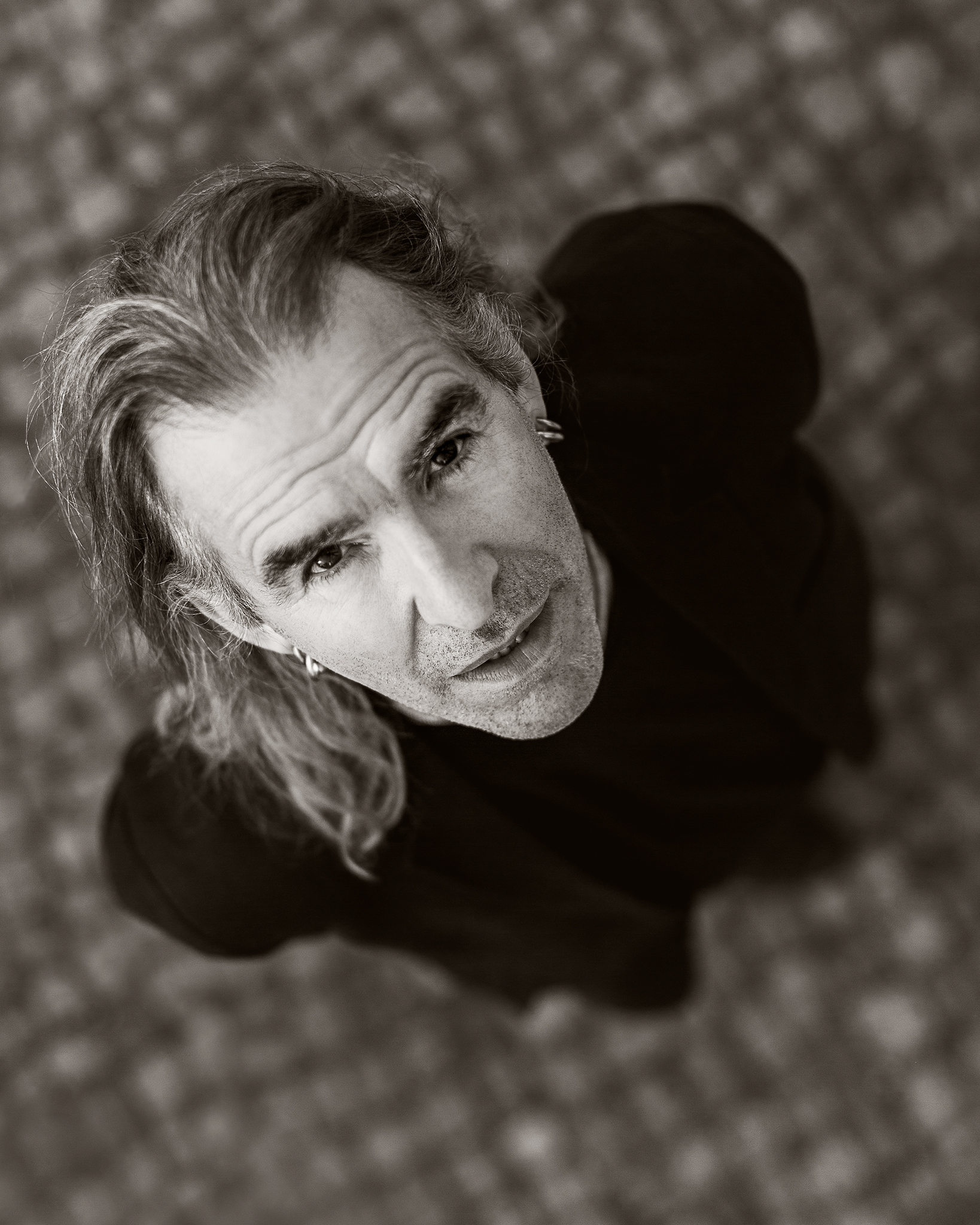
I also think that what attracts people to the concerts is that they can express themselves. They can shout it out loud. I could shout it out right here, in the park, but no one would care. But if you are at a concert, you have the feeling that you share something.
I agree. That was the basic principle for the Night of A Thousand Voices thing last year. I can’t understand why no one has done it before because it’s so obvious. Every band has the experience of playing the first verse quietly, and then everybody sings and everybody loves it: the audience loves it, the band loves it. So to make a whole weekend out of that – why not? It was a really special thing.
Will you do this in Germany?
We should. But it’s a little bit like this: sometimes you do something, and it’s really good, and then you kind of don’t want to repeat it. I remember a month ago I was talking to Marshall, and he said, „We need to write the next album quickly, so we can go back to Norway to that studio.“ And then we both looked at each other and went, „Maybe we should never go back.“ Maybe it should have been like the ten day wonder, that we will remember for the rest of our lives. We got an interesting album out of it, and we should just leave it there.
I know the Night Of A Thousand Voices would work in Germany; it would work great. But whether we SHOULD do it – I don’t know.
I have the feeling that over the years your albums have become less angry. Would you say that you have become a less angry person, or is this something like wisdom that comes with age?
I don’t know if it’s wisdom that comes with age. Hmm [thinks for some time]. Maybe. I still get really angry about stuff. But, it’s like in From Here: „Look at yourself in the mirror – and laugh“. Because we are all fucking ridiculous. I’m not less angry about things that are happening in the world. But at the same time, when everybody else is angry, and everybody is screaming at everybody – is it a time to raise my flag and go, „I’m on this side“? Well, it’s obvious what side we’re on – if there is that.
When 9/11 happened, the world went sort of crazy, and the screaming for vengeance in America started. And at the same time the Islamization of parts of the Islamic world happened. When everybody is in that state, part of me wants to take one step back.
And in 2002 I did Navigating By the Stars, and that was a big step back, and a look at the bigger picture. So maybe there is an element of that. Well, I think yes, as you get older you see more context. And the overriding thing is: ok, so you look at all the plastic in the ocean – am I angry? Yes, I am angry, but I am sadder than I am angry, I think.
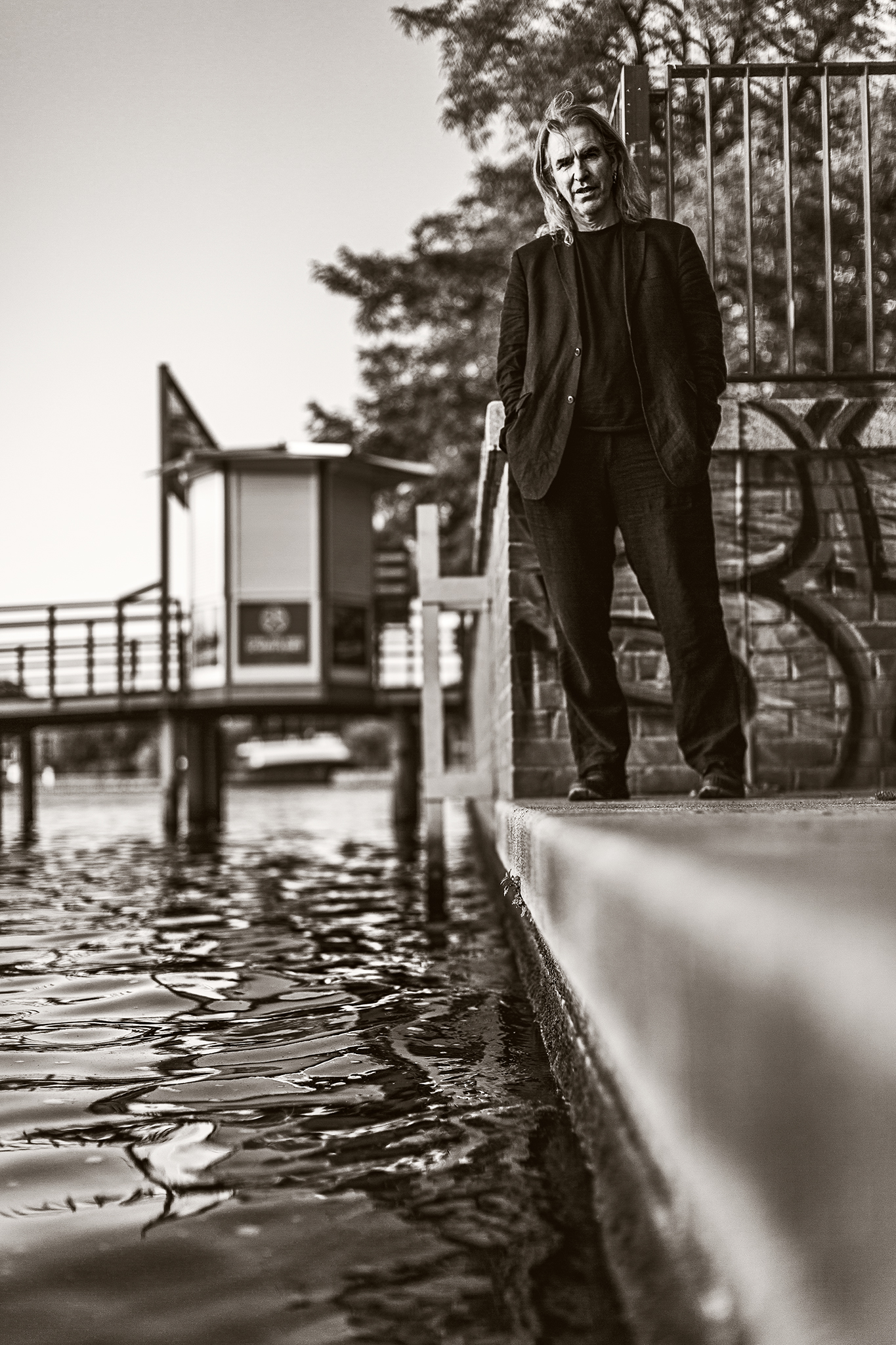
But maybe it’s age. We did High in the middle of the war on terror, and that is quite an angry album, I think. Although again, it has got happy songs on it. I remember that time, and I think that it’s very like the American war in Vietnam, where the Americans thought they were fighting communism, and the Vietnamese just though they were fighting foreigners. Because communism was the form that the national resistance took. And I think that about the Islamic Movement, that was at its strongest ten, fifteen years ago. The Middle East has been under the thumb of the Western World for a long time. They each had their national resistance, with Nasser in Egypt and so on, but they have always managed to be bought out by The West. So the one thing The West couldn’t buy was their religion, which is why basically it was a form of resistance to Western imperialism. It took this form.
We were talking about anger. Sometimes I think when everybody is angry, and screaming, and shouting – isn’t it then a rebel move to be quiet and to be peaceful?
[Laughs] Well, that’s another way of looking at it. Slightly a hippie attitude.
I am a hippie.
Yeah, I’ve got some of that in me. I was born in the countryside. When you go back to the nature gods, then you see everything in a bit more context.
I’m not talking about ignoring things. I am also still angry, but what’s the point of even arguing with all these people all the time when you cannot change them. You can talk to like-minded people instead.
Yes – or, the people that you hope to change. You’re not going to change them by going up against them. If you’re possibly going to change them, you’re going to talk about the things that you have in common – not the things that you don’t have in common. So let’s talk about the planet because we are all stuck on it.
And music anyway. It is easy to make words about words. I often do interviews, and get drawn into philosophical or political conver-sations, about words. But music is something else. One thing I thought when I was listening to From Here is that there is an extraordinary amount of energy in it. Ok, it’s not full-on punk rock, but if you listen to the playing, it’s all leaning forward, it’s quite driving. Music is this strange, weird, abstract magic that works without words. Sometimes it works better without words.
Some of my favorite music is songs in a different language that I don’t understand. And that’s fine by me. Last night, when Wassim Mukdat was playing, it was all without vocals, but incredibly expressive. And you really felt things; you felt your body move, and you felt your emotions move, just for the music. Yes, I write words. I wouldn’t describe myself as a great musician, but I do love music, and I love great musicians. That feeling, which is abstract – you can’t put it into words. That’s the point of it – that you can’t put it into words.
People said that this is one of the remarkable things about human beings: the invention of music. I saw a documentary about chimpanzees in a forest, and there was this hollow tree, and they would go up and bang on the tree. Not for any other reason that it made them happy to make that noise. And that is music.
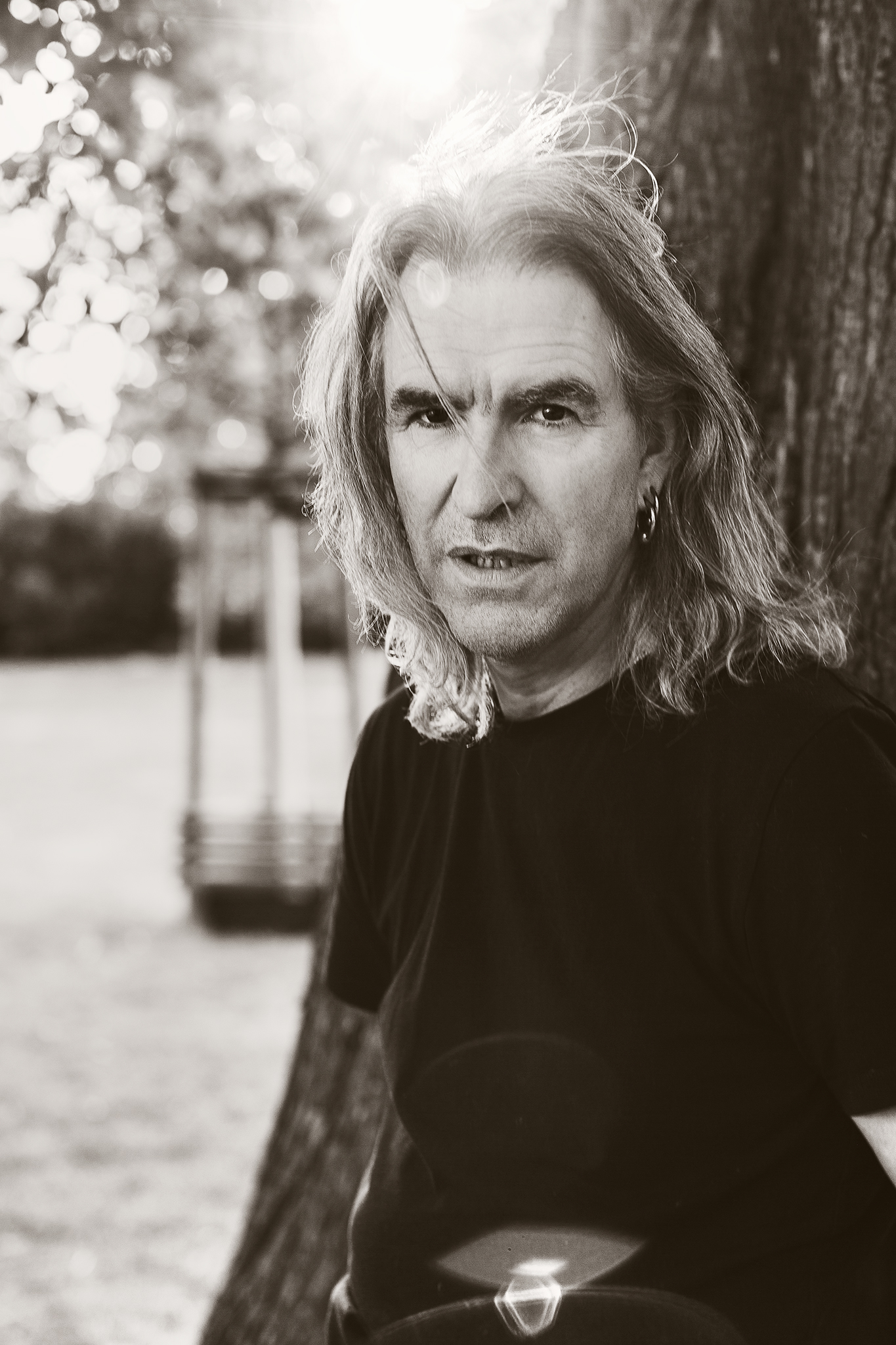
(C) DEPICTED Magazine 2020
No usage of the photos without permission.
Read on:
Interview with Sara from MESSA / DEPICTED #1
Your tour with SABBATH ASSEMBLY has just finished. When you come back home after such a long tour, is it a relief or are you rather sad? Both of them. Being on tour is as much fun, and as......
Interview with Toni from (Dolch) / DEPICTED #1
ENNIO MORRICONE – “Once Upon A Time In The West” [from the 7”, 1968 / German: “Spiel mir das Lied vom Tod”] This is one of my first childhood memories: There is a man hanging on the gallows, standing on......
Interview with Justin Sullivan from NEW MODEL ARMY / DEPICTED #1
Last night you played at a festival dedicated to world peace. Did you ever believe in such a thing? I read somewhere that some historians did some research. In the total of human history there had been a period of......
Interview with Alex Ithymia from SUNSHINE & LOLLIPOPS and BHNP / DEPICTED #1
So let’s switch to English now. I am very curious about your accent. It’s horrible. Ever heard THE SCORPIONS speak English? I am slightly better than Rudolf, but not much [laughs]. It’s a bit strange to talk to a......
Interview with Shazzula from Wolvennest / DEPICTED #1
Shazzula is an interesting name. Where did you find the inspiration for it, and does it have a meaning? Well, in the early days of Napster, I spent some time there exchanging musical interests with some people. Everyone was......
Interview with Marcelo Aguirre from EVIL SPIRIT / DEPICTED #1
You are one of the people with the most diverse taste in music that I know. From metal to jazz to experimental and electronic music, you listen to everything. Was it like this from the beginning, or did it......
Photoshoot with LAUREN RUTH WARD/ DEPICTED #1
Unfortunately there was no time to do an interview, so this is a photo gallery feature. Enjoy. See the complete set of photos with Lauren in fullpage size in the print issue of DEPICTED. Get your copy......
Interview with Malte from NECROS CHRISTOS and SIJJIN / DEPICTED #1
The era of NECROS CHRISTOS is coming to an end. You released the last album and now you are playing the last concerts. Have you already reflected on a personal conclusion to this project? What were your highlights and......
Interview with EVILYN FRANTIC / DEPICTED #1
I heard this story once, that when you started your life as an artist, you ran away with the circus. Is this true, or is it just a legend? No, it is very true. I kind of ran away......


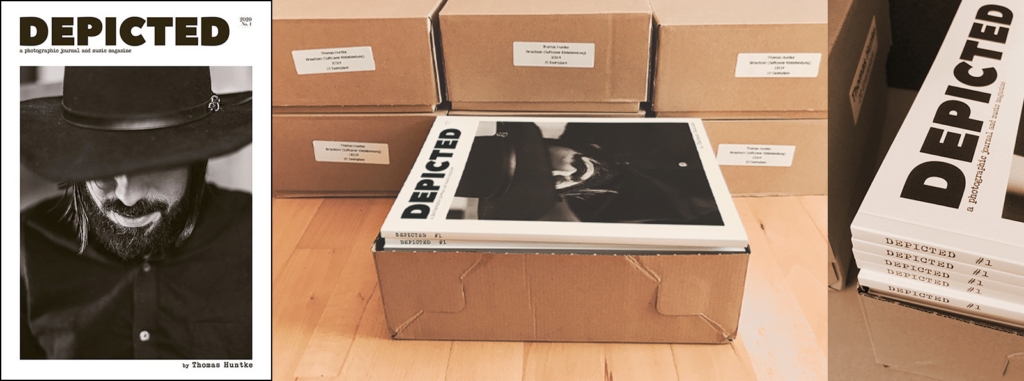



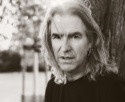


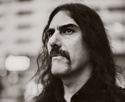



No Comments